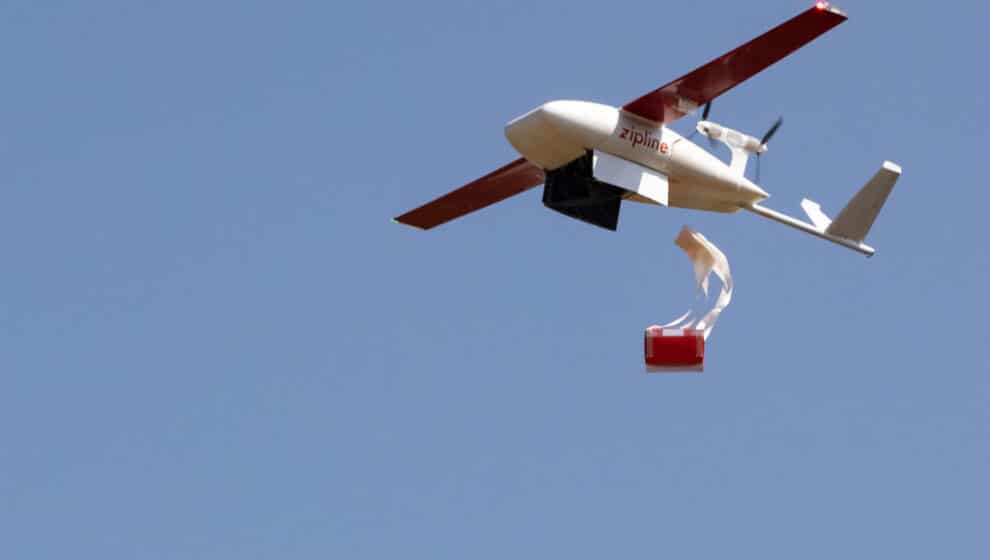Drone delivery is nothing new to the tech world, but a new program in India is using drones to bring necessary medical care to hard-to-reach areas.
Key Details
- Doctors Without Borders has been experimenting with drone delivery to reach inaccessible areas of countries around the world.
- Already, the humanitarian association has been able to address a tuberculosis outbreak in Papua New Guinea and Ebola in Liberia through the help of drones.
- Gavi, an organization that helps deliver vaccines to underserviced areas, has used drones to broaden the scope of its services to areas where the infrastructure wouldn’t support traditional delivery methods.
- Organizations looking to deliver COVID-19 vaccines to rural areas were able to expedite the technology needed for drone delivery.
Why it’s news
In parts of the world where lack of infrastructure makes travel difficult, some areas don’t have access to medical care that would otherwise be readily available. In India, for example, there is a particular focus on providing effective and efficient medical drone delivery to rural areas.
India’s population of 1.4 billion citizens has access to nearly 30,000 government-run healthcare centers. However, The World Economic Forum reports that 5% to 10% of the population cannot access care due to a lack of infrastructure or natural disasters.
Through the World Economic Forum’s Medicine from the Sky initiative, developers are working to create a dependable supply chain system in India to deliver medical supplies to hard-to-reach areas.
The Medicine from the Sky initiative began in 2019, but the need to deliver COVID-19 vaccines to a greater number of people accelerated the project. The success of medical drone delivery has allowed more discussion on how else drones can be used to provide necessary services.
“The Medicine from the Sky initiative has demonstrated how the country can successfully make use of cutting-edge drone technology to ensure no one is left behind, in terms of access to primary healthcare. We are hopeful that subsequent phases of this initiative will mainstream drones in healthcare,” India’s Minister for Civil Aviation Jyotiraditya Scindia says.
While drones provide a simple and effective way to overcome the lack of infrastructure in certain areas, critics still worry about the safety and security concerns surrounding drones.
The project in India has delivered more than 300 vaccines deliveries in the Indian state of Telangana—reaching remote areas of the region. This is the first time drones have been used to deliver vaccines beyond the operator’s visual range.
